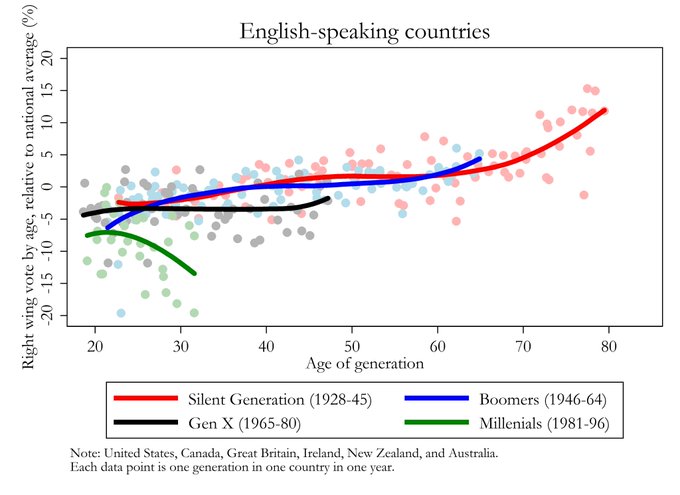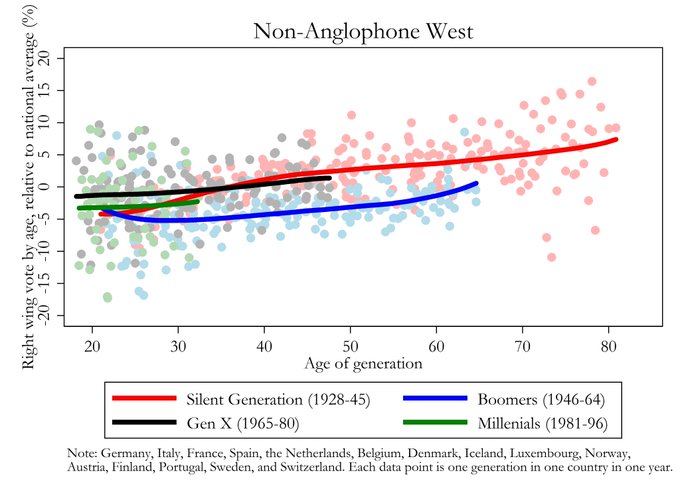
Amory Gethin
@amorygethin
Followers
3,867
Following
615
Media
199
Statuses
639
Incoming researcher @WorldBank . Redistribution coordinator @WIL_inequality . PhD @PSEinfo . World Political Cleavages and Inequality Database: .
Paris, France
Joined May 2016
Don't wanna be here?
Send us removal request.
Explore trending content on Musk Viewer
#KawalPutusanMK
• 3262875 Tweets
#TolakPolitikDinasti
• 2077284 Tweets
#TolakPilkadaAkal2an
• 1997649 Tweets
FB JOIN OPENING BTV HOUSE
• 472073 Tweets
BATALKAN BUKAN TUNDA
• 330462 Tweets
Mulyono
• 226113 Tweets
Bolt
• 89836 Tweets
South Africans
• 83902 Tweets
SF x PONDPHUWIN
• 50801 Tweets
鯉登少尉
• 47107 Tweets
ポケ森サ終
• 40123 Tweets
首都高バトル
• 28703 Tweets
中川大志
• 25157 Tweets
南京大虐殺
• 22281 Tweets
本人確認
• 20833 Tweets
BGYO TRASH OUT NOW
• 17644 Tweets
GCSE
• 16902 Tweets
シェフィ
• 13239 Tweets
ドラゴンズ
• 12824 Tweets
VLOG 10 WITH BUILD
• 12148 Tweets
勝ち越し
• 12040 Tweets
#ミュージックジェネレーション
• 11926 Tweets
ベイスターズ
• 10574 Tweets
Last Seen Profiles
So happy to see our article forthcoming at AEJ: Applied 🥳 This was the very first paper I ever worked on, quite a journey since we started collecting data in 2017 with
@thomas_blncht
and
@lucas_chancel
!
Here are five facts that we uncover about income inequality in 🇪🇺 and 🇺🇸: 👇
23
371
1K
Hugely excited to announce the publication of our article in
@QJEHarvard
!🤩 This paper is the outcome of a massive data collection effort that we started with
@cmtneztt
and
@PikettyLeMonde
in 2017.
A few takeaways on the evolution of political divides in Western democracies 👇
11
214
918
Excited to announce I will be joining the
@WorldBank
Development Research Group this September in Washington DC. Incredibly grateful to all of you who accompanied me during the past few years and looking forward to this new part of life!
30
3
368
Huge thanks to my incredible advisor
@PikettyWIL
, outstanding jury
@DAcemogluMIT
,
@CageJulia
,
@ezhuravskaya
,
@gabriel_zucman
, Emmanuel Saez, and the extraordinary co-authors and friends who accompanied me all along this beautiful journey 👨🎓🙏
👨🎓 Congratulations to
@amorygethin
(
@PSEinfo
@EHESS_fr
) who defended his thesis entitled "Essays on the Political Economy of Global Inequality" yesterday under the supervision of Thomas Piketty 🍀
0
0
47
13
13
289
Very happy to announce that our article "Wealth inequality in South Africa, 1993-2017" has been accepted for publication in the World Bank Economic Review! 🧵👇
Working paper here
#EconTwitter
:
8
56
170
Today, Political Cleavages and Social Inequalities is finally out!! 📚🥳
In this collective volume co-edited with
@cmtneztt
and
@PikettyLeMonde
, we map the long-run evolution of electoral divides and their interaction with economic and identity-based conflicts around the world 👇
2
30
158
🔗 More results in the paper, and comments welcome!
@WIL_inequality
@PSEinfo
@OurWorldInData
@MaxCRoser
8
19
152
How does redistribution vary over the course of development?
Has there been a convergence in tax-and-transfer systems?
We Matt Fisher-Post, we paint the first global picture of government redistribution since 1980.
5 stylized facts: 🧵
@voxeu
@BaldwinRE
2
41
113
📢Please share! I am looking for a research assistant to work on a project evaluating the role of education in reducing poverty and inequality worldwide since the 1950s.
Start date, duration, and modalities are very flexible.
More info:
@econ_ra
4
42
98
✈️ Very happy to announce that I will be a visiting fellow at
@Harvard
from September 2021 to January 2022! Looking forward to integrating a new stimulating research environment!
5
0
72
It's official: our article with
@aroopc82
and
@Leo_Czajka
is published in the World Bank Economic Review! 🥳
Free access:
3
12
57
✈️Excited to be a visiting fellow at
@MITEcon
this semester! If you're based in Boston and work on any topic related to political conflict, poverty and/or inequality, feel free to reach out
#EconTwitter
#PoliticalScience
1
1
53
Excited to see that our paper with
@thomas_blncht
and
@lucas_chancel
is now published! Short thread I wrote some time ago summarizing our main findings 👇
So happy to see our article forthcoming at AEJ: Applied 🥳 This was the very first paper I ever worked on, quite a journey since we started collecting data in 2017 with
@thomas_blncht
and
@lucas_chancel
!
Here are five facts that we uncover about income inequality in 🇪🇺 and 🇺🇸: 👇
23
371
1K
2
3
52
Happy to announce the release of our paper on wealth
#inequality
in 🇿🇦 with
@aroopc82
@Leo_Czajka
.
📝Extreme inequality, with no sign of decrease since 1993.
📊The top 1% own 55% of private wealth; the bottom 50% are net debtors (their debts > assets).
4
17
36
Why study inequality at the very top, beyond quintiles or deciles? Well, the top 20% in South Africa own... 100% of wealth. The top 0.01% alone hold more wealth than the entire poorest 90%.
@Rowaida_Moshrif
on measurement of ineq in emerging countries
0
8
35
Can redistributive policies successfully foster inclusive growth in emerging economies?
With
@aroopc82
and
@Leo_Czajka
, we shed new light on this question by studying the case of South Africa, one of the most unequal countries in the world.🧵👇
🔗
2
13
35
🇧🇷 Which divides will likely play out in the coming Brazilian election?
Some suggestive figures we pulled out with
@Marc_Morgan_
updating our prior work:
1) Continued rise of extreme economic-class divides
2) Persistence of religious divides
3) Decline of other divides 1/ 🧵
1
7
34
🚨Switzerland, often cited as the paradise of direct democracy, is also the European country where identity politics (far right vs. greens) have most deeply reshuffled party politics.
👉New paper on political conflict in🇨🇭🇳🇱🇦🇹🇧🇪 with
@cmtneztt
& C. Durrer
2
9
31
In this
@voxeu
column, we present some of our recent research:
➡️Wealth concentration is higher in 🇿🇦 than anywhere else in the world.
➡️It has remained very stable since the end of apartheid.
➡️A progressive wealth tax could collect 1.5-3.5% GDP.
1
16
31
🎥Thanks to
@esaagar
and
@krystalball
for hosting me on Breaking Points to discuss class politics and the evolution of political divides in Western democracies this morning! Full interview here 👇
0
3
28
"The party of Nelson Mandela promised a better life for all. So far it has delivered a much better life for a few."
Great summary of our research on the evolution of inequality in South Africa since the end of apartheid published in today's
@TheEconomist
.
1
4
27
Fantastic paper on the role of predistribution versus redistribution policies in shaping the reversal of educational divides in the United States 👇👇
I am very excited to share our new NBER WP with
@ikuziemko
and
@snaidunl
: “Compensate the Losers”: Economic Policy and Partisan Realignment in the U.S.
A short summary of the paper below.
7
61
200
0
3
27
Je débattrai des principaux résultats de notre livre Clivages politiques et inégalités sociales, en compagnie de
@PikettyLeMonde
et
@cmtneztt
, lundi prochain (12 avril) à 18h, dans le cadre des Débats de l'égalité du
@WIL_inequality
.
Inscription 👇
0
6
25
🇫🇷 The emergence of the French Brahmin left, 1956-2017 by
@PikettyLeMonde
📊In the 1950s, left-wing parties were the parties of the working class. They have now become the parties of intellectual elites.
#Elections
#Elitisme
#PoliticalCleavages
🔗More on
0
7
22
💵Is wealth inequality high in South Africa? Well... the top 1% own 55% of wealth; the bottom 90% own 14%. New summary of our research with
@Leo_Czajka
@aroopc82
:
💸What can we do about it? Here's one idea
#WealthTax
1
8
22
🇿🇦 Why South Africa needs a wealth tax now! We show that a
#wealth
tax on the richest 1% could raise at least R143 billion. That equates to 29% of the R500bn fiscal cost of the
#COVID19
relief package.
@aroopc82
@Leo_Czajka
@WIL_inequality
@Wits_SCIS
0
10
22
Why is Europe more unequal than the US? Is it because of "predistribution" or "redistribution"? Here are a few answers, summarized in this figure, from our paper with
@lucas_chancel
and T. Blanchet. 1/
2
4
22
🇩🇪 The Greens in Germany, as in nearly all Western democracies, have mostly concentrated the votes of the higher-educated electorate since their emergence in the 1980s.
🔗Figure:
📄Working paper by
@FabianKosse
:
0
5
20
🇩🇪 As the day of Germany's next election approaches,
@FabianKosse
's work on the evolution of voting behaviors since 1949 is particularly insightful to understand the key divides at play.🧵👇
🔗Data and charts:
📃Working paper:
1
7
20
🇧🇷 Who voted for Jair Bolsonaro in 2018? How have political cleavages evolved in Brazil since 1989?
Very excited to release this new paper with
@Marc_Morgan_
on the politicization of inequality since the democratic transition!
1
6
19
Très heureux d'avoir l'occasion de partager quelques réflexions sur les inégalités de patrimoine en France pour
@libe
. 👇
0
4
16
🇿🇦 A WEALTH TAX FOR SOUTH AFRICA
💡In this new paper, we estimate with
@Leo_Czajka
and
@aroopc82
that a moderate wealth tax on the top 1% could raise as much as 134 billion Rand, or 2.75% of GDP. A short thread. 1/13
3
5
17
As political systems have come to represent two kinds of elites, the well-educated and the rich, they have left little space for the most disadvantaged citizens. Our column in
@guardianopinion
with
@cmtneztt
&
@PikettyLeMonde
👇
0
7
17
Happy to present my poster on the long-run evolution of political divides in Western democracies at the
#ASSA
conference 👇
Virtual conference:
Poster PDF:
Full paper:
0
0
14
Excited to present our work on government redistribution in South Africa 1993-2019 tomorrow at AYEW! 👇
Working paper here:
TOMORROW (20 October) on Applied Young Economist Webinar
Join us at 3pm BST (1am AEDT Thurs) to listen to
@amorygethin
(
@PSEinfo
)
Sign up for Zoom details:
1
7
10
0
1
14
📈Regional inequalities in Thailand are among the highest in the world. They triggered the rise of deep class conflicts in the 2000s, which have persisted until today.
📜Our new working paper with
@mjenmana
on political cleavages in 🇹🇭🇵🇭🇲🇾🇮🇩, 1992-2019
0
3
13
Inequality is higher in 🇺🇸 than in 🇪🇺.
But contrary to common beliefs, redistribution is higher in 🇺🇸 than in 🇪🇺.
👉US and EU can learn from each others' inequality-reducing policies.
Our article with
@thomas_blncht
@lucas_chancel
@WIL_inequality
:
0
5
13
Looking forward to presenting our preliminary work on wealth inequality in South Africa - jointly with
@Leo_Czajka
and Aroop Chatterjee.
Main conclusions: extreme concentration of wealth, with no sign of decrease since the end of apartheid.
@WIL_inequality
@Wits_SCIS
0
1
13
The Zemmour vote is very different from the FN vote. It has been highest in cities with highest levels of income and education.
Population density does not seem to matter much.
But... 👇
@amorygethin
What about Zemmour? He seems to have attracted many more wealthy voters from areas where Le Pen was doing rather poorly until now (West of Paris, Versailles, etc.).
2
1
7
1
0
13
Interested in the Brazilian election coming up this Sunday? A few insights on the political divides that are likely to matter 🧵
🇧🇷 Which divides will likely play out in the coming Brazilian election?
Some suggestive figures we pulled out with
@Marc_Morgan_
updating our prior work:
1) Continued rise of extreme economic-class divides
2) Persistence of religious divides
3) Decline of other divides 1/ 🧵
1
7
34
1
2
13
💡"Où est l'argent?" Nouveau numéro de
@rceconomie
, disponible sur Cairn !
💵Paradis fiscaux, monnaie, pouvoir, inégalités, fiscalité... et plus encore !
🔧Avec les contributions de
@thomas_blncht
@gabriel_zucman
de
@WIL_inequality
, et bien d'autres !
0
10
13
💡Good summary of our research on the extreme and persistent concentration of wealth in South Africa, made possible by a unique collaboration between
@WIL_inequality
and
@Wits_SCIS
The results of
@aroopc82
,
@amorygethin
and
@Leo_Czajka
's latest working paper on
#wealthinequality
in
#SouthAfrica
are widely quoted in today’s dailies. Read more
@dailymaverick
: and here too:
#3500people
0
3
5
0
2
13
"Changing party systems and nationalism in Northern Europe" 🇩🇰🇫🇮🇳🇴🇸🇪🇮🇸 , by
@cmtneztt
@AliceSodano
➡️ Decline of historical class cleavages
➡️ Rise of multi-elite party systems (high-educated "left" vs top-income "right")
➡️ Rise of far-right nationalism
0
5
11
Download the World
#InequalityReport
! 👇
♀⚖
#GenderEquality
, 2020
Women’s share of labor income is below 50% (parity level) in all regions, with significant variations among them.
Countries should
🔸 facilitate women's access to the labor market
🔹 address the pay gap
👉
#InequalityReport
1
25
31
0
1
12
Great thread on generational divides in Western democracies using data 👇
Millenials are decisively more progressive than other generations in the English-speaking world, but elsewhere trajectories are more heterogeneous.
0
2
12
Very interesting work
@tabouchadi
!🙂With T. Piketty and
@cmtneztt
, we have now extended our work to 21 West. dem. and will soon publish a book + paper in which we explore some points you mention. Here are already some of our working papers I hope you might find interesting 👇
As part of a fantastic special issue in the
@BJSociology
on Capital and Ideology,
@simonjhix
and I investigate Piketty’s arguments about a Brahmin Left that now supposedly represents the educational elite and because of this focuses less on redistribution
7
70
216
1
0
12


















































































































